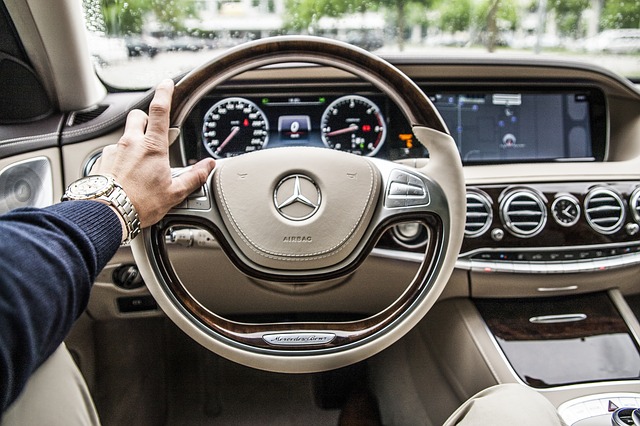
It can only take a momentary lapse in concentration for disaster to strike when you are driving a car and when you are too tired and end up falling asleep, that can be very scary indeed.
A percentage of all fatal car crashes each year involve a driver who has fallen asleep at the wheel and many of these accidents could potentially have been avoided with greater awareness of the dangers of driving while tired.
Here is a look at some of the key strategies that should help you avoid the prospect of falling asleep, including the consequences of a poor sleep schedule, tips on how to keep your body fueled, and why driving through the night is such as risky thing to do.
Get enough sleep
It might seem obvious advice but a good night’s sleep is beneficial in many ways, including the advantage of ensuring that you start your journey feeling refreshed and wide awake.
It seems that drivers who have only had five hours or less of sleep before getting behind the wheel are as many as five times more likely to be involved in an accident.
That means you are seriously raising your risk profile if you attempt to drive your car without having had enough sleep the night before. There are plenty of professional car accident lawyers who will have seen the consequences of what driving when tired can lead to.
One of the fundamental effects of sleep deprivation is a greatly reduced level of alertness, and this means that your response rate to a potentially dangerous incident may not be fast enough to get you out of trouble.
Aim to get at least 8 hours sleep a night in order to give yourself the best chance of driving safely.
Know when to stop
Another dangerous thing to do is attempt to continue your journey despite feeling tired.
Driving long distances can often take its toll on your body and that is why it is so important to recognize the signs of fatigue and act on them, rather than try and soldier on through the tiredness.
A good guide to consider would be to try and stop every couple of hours for a quick break.
Stepping outside of the car and grabbing a coffee or just stretching your legs will help boost your alertness and combat any fatigue you may be experiencing.
Try not to travel alone
Short journeys shouldn’t be an issue as long as you have had enough sleep but if you are going to be driving for more than a couple of hours it is a great idea to see if you can bring a passenger to keep you company.
Aside from the obvious social benefit of having someone to share the ride with it provides you with an extra set of eyes fro the road and they can look out for signs that you are getting tired.
If you are both insured to drive the car you could also consider switching drivers on long journeys so you can get some rest.
Medication and alcohol are going to affect your driving ability
There are laws about driving with too much alcohol in your bloodstream, of course, but even if you are under the legal limit and would pass a roadside test, any amount of alcohol in your is going to impair your driving ability to a certain extent.
Even the smallest amount of alcohol can cause you to feel drowsy, and if you are on medication this can make you feel more sleepy than you should be to be able to drive safely.
If you are on regular medication, it is a good idea to check with your doctor about what impact it might have on your ability to drive.
Respect your usual sleep pattern
We are all creatures of habit and many of us are hard-wired to be asleep during the usual nighttime hours of midnight until morning.
It, therefore, stands to reason that driving your car between these times is considered a riskier thing to do, seeing as this might be the time of the day that you are usually spending asleep in your bed.
Accidents involving drowsy drivers tend to peak in the hours between 12 am and 6 pm so try to avoid driving your car at this time if you can.
Keep your mind awake
Feeding your body with some appropriate snacks and staying hydrated with water should prove to be great strategies in helping you keep alert as possible.
Drinking plenty of water, or maybe having an energy or fruit drink should ensure that you stay hydrated and maintain a decent level of alertness.
Another tactic to consider would be to chew on something like gum while you drive as it’s an activity that can help to keep your brain active.
As well as keeping your body fueled, it can also help to listen to some music as it ensures that your mind is focused, which should aid your ability to focus on the road too.
Turn down the temperature dial
It’s nice to feel warm and cozy in your car but the obvious downside to having the temperature up high is that it can increase your feeling of tiredness.
You are far more likely to stay alert if you keep the temperature level lower in your car and opening the window for a blast of fresh air can also have an impact on combating drowsiness.
Sugar isn’t a quick fix
Finally, a common misconception is that a shot of caffeine through drinking a cup of coffee or a sugary snack will help boost your level of alertness.
Don’t rely on these products to mask over any tiredness that you are experiencing. It would be far better to fuel your body with some water or a high-protein snack if you are feeling hungry as well as tired.
Your aim is always to stay as safe as possible when you are driving and being honest with yourself about how tired you are so that you can take steps to deal with the problem before it becomes a potentially dangerous problem.


